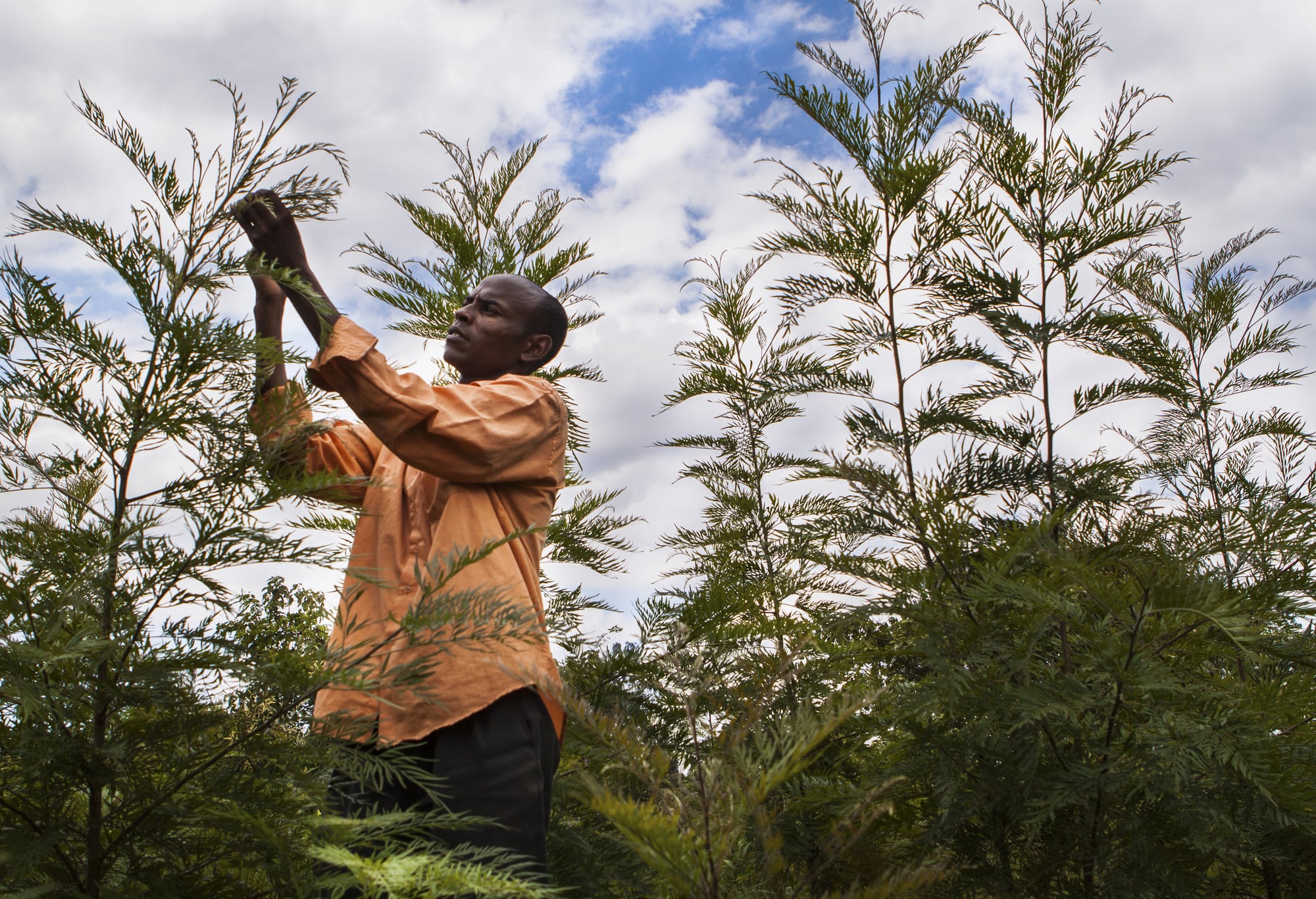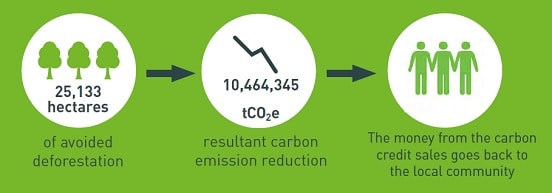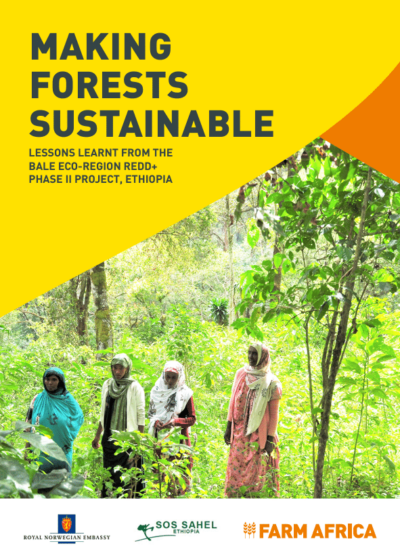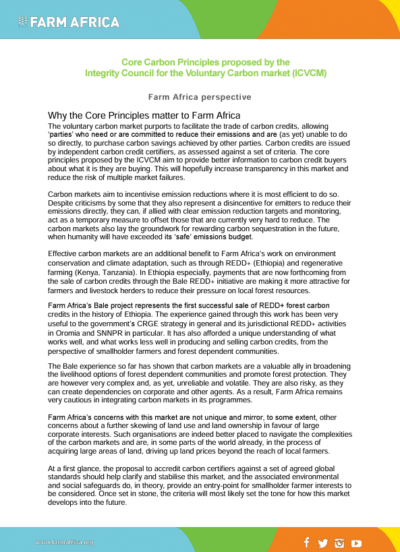Programme
Complete
Making forestry sustainable
Country
Ethiopia
Running from
2019-2022
People reached
350,000
Key focus areas
Act on climate change
Increase incomes
Protect ecosystems

Since 2006, Farm Africa and a consortium of partners have been working in Ethiopia’s Bale Eco-region on a participatory forest management scheme. This scheme supports local forests users and the government to manage the responsibilities and benefits of the region’s forests together.

During this project, we increased local communities’ ability to earn money from the forests while protecting its resources by piloting sustainable timber production and marketing and improving the inclusivity of forest management organisations. We engaged women and underrepresented groups to participate in project activities and helped communities reinvest their capital from the sale of carbon credits in local eco-friendly businesses.
This project improved the livelihoods of over 350,000 people living in Bale and protected the delivery of ecosystem services to 12 million people living beyond Bale’s borders. We helped the government to create long-term ways to preserve Ethiopia’s forests, integrating participatory forest management approaches into national-level forestry and REDD+ programmes and policies. The project remains a knowledge hub for local communities, policymakers and forestry professionals.
We carried out this work in partnership with local NGO SOS Sahel and government agencies The Ministry of Environment, Forest and Climate Change of Ethiopia, The Oromia Forest and Wildlife Enterprise and The Oromia Forest, Environment and Climate Change Authority.

Country
Ethiopia
Key focus areas
Increase incomes
Protect ecosystems
Making forests sustainable
Between 2012 and 2021, Farm Africa worked with the NGO SOS Sahel Ethiopia, with funding from the Royal Norwegian Embassy in Ethiopia, to deliver a REDD+ project that lowers greenhouse gas emissions by reducing deforestation in the Bale Eco-region, while also boosting the livelihoods of local communities living in poverty. This document presents key lessons generated by the Phase II of the project, which ran from 2016 to 2021.
Download (23.63mb)

Country
Ethiopia
Key focus areas
Increase incomes
Protect ecosystems

Farm Africa response to the Core Carbon Principles proposed by the Integrity Council for the Voluntary Carbon Market (ICVCM)
More info
Country
DR Congo
Key focus areas
Act on climate change
Increase incomes
Protect ecosystems
Farm Africa response to the Core Carbon Principles proposed by the Integrity Council for the Voluntary Carbon Market (ICVCM)
This PDF is the response Farm Africa submitted in September 2022 to a public consultation on the draft Core Carbon Principles (CCPs) and Assessment Framework (AF) being developed by the Integrity Council for the Voluntary Carbon Market (ICVCM)’s Expert Panel. The CCPs and AF will set new threshold standards for high-quality carbon credits, provide guidance on how to apply the CCPs, and define which carbon-crediting programmes and methodology types are CCP-eligible. The Core Carbon Principles and Assessment Framework will be issued in Q4 2022, following the public consultation, which launched in July 2022.
Download (606.24kb)

Country
DR Congo
Key focus areas
Act on climate change
Increase incomes
Protect ecosystems

